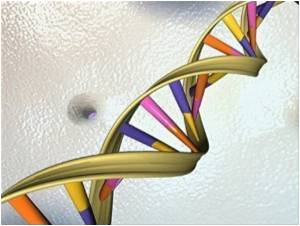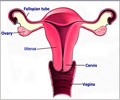
So far, they have been successful in identifying DNA from the Y chromosome, indicating that the foetus is a boy and therefore could be at risk of inheriting an X-linked disorder such as Duchenne's muscular dystrophy and haemophilia.
The researchers believe the same method can be used to detect trisomy 21 (where an extra chromosome 21 causes Down's syndrome) and they are investigating this next, followed by trisomy 13 and 18 (responsible for causing Patau and Edward's syndromes respectively).
Frints and her colleagues are using the "Multiplex Ligation-dependent Probe Amplification" (MLPA), technique to detect foetal DNA that is present in the blood of women who have been pregnant for at least six to eight weeks.
"It is inexpensive compared to the costs of invasive prenatal diagnosis, and could easily be implemented at low cost, between 30-150 Euros per kit per person, with a small apparatus in every hospital in the world. Blood samples can be taken during routine antenatal visits," said Frints.
The study started in 2009 and is expected to continue to 2012 or longer.
Advertisement
To obtain MLPA proof of principle, they have recruited 14 women who had a pregnancy termination between 14-22 weeks gestation because of trisomy 13, 18 or 21 detected by invasive prenatal diagnosis (group A), four women who had non-invasive prenatal screening at 12-14 weeks gestation (group B), three women who had invasive prenatal diagnosis because of being at least 36 years old (group C), and nine non-pregnant control women who had had up to three children (group D).
Advertisement
"The MLPA test results obtained in 2009 were compared with the results of amniocentesis, chorionic villus sampling and pregnancy outcome. All but one with sample correlated the non-invasive MLPA test results, detecting foetal Y-chromosome sequences," said Frints.
"At the moment, the reliability of the test is about 80% due to false negative results, but we are working to improve the accuracy of the MLPA probe," she added.
"Although we need to test and refine this MLPA technique further, our results so far are promising. This is innovative translational research and when we succeed in developing the MLPA procedure for use in maternal blood, we will be able to offer a safe, cheap, fast, reliable and accurate non-invasive test, which will be of immediate benefit to pregnant women, young and old, all over the world," said Frints.
The researchers hope the test may be available in the clinic in two to five years' time.
Source-ANI













